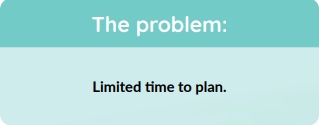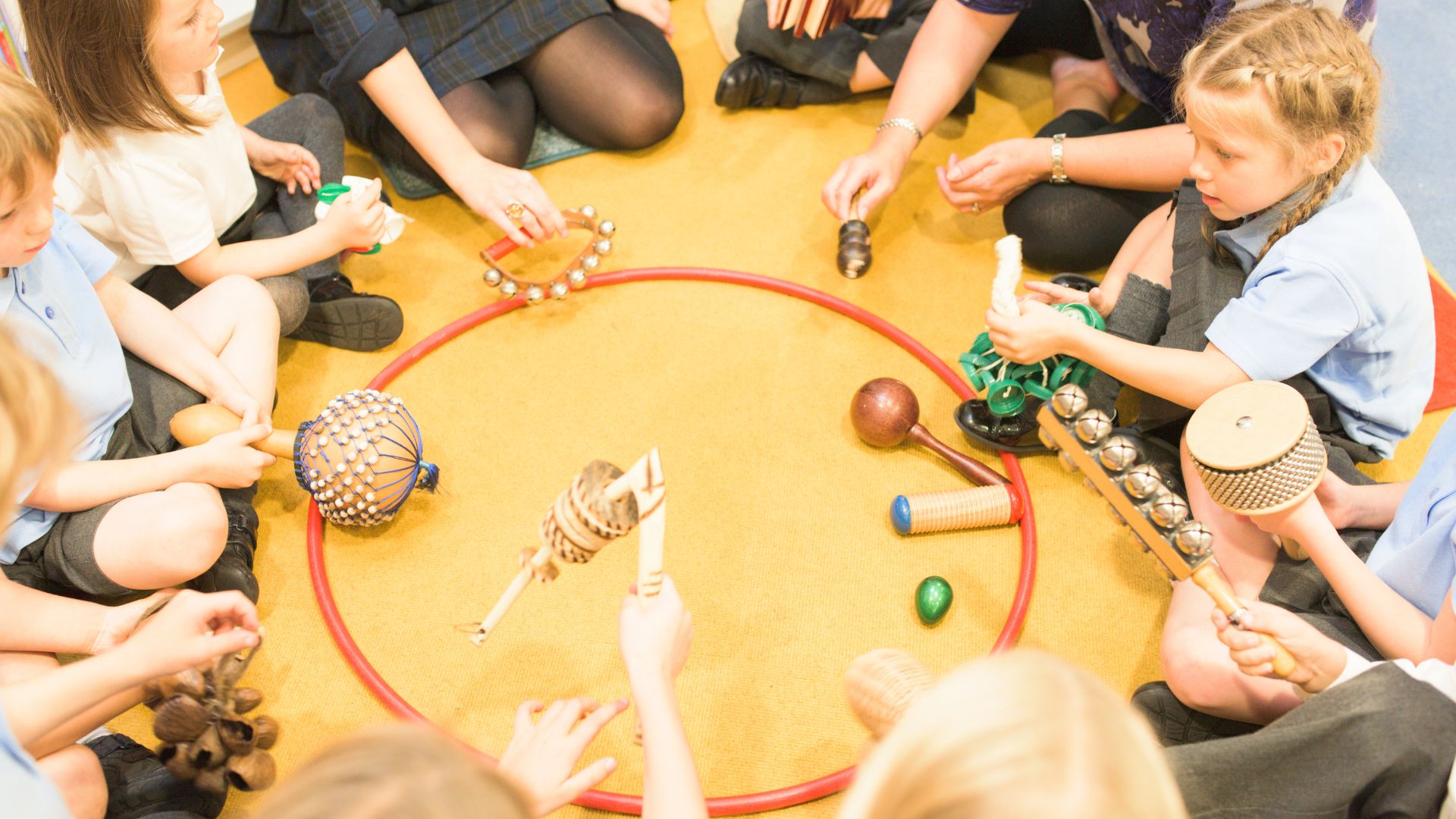Key learnings from this article:
- The Ear provides a well resourced solution to your musical education teaching.
- We provide learn-as-you-go teacher CPD as part of each lesson plan to upskill teachers while delivering excellent lesson content.
- All lessons are curriculum linked, both as part of music and wider core subjects.
- We offer a well priced solution for all aspects of your music teaching, from whole class lessons to assemblies and music instrument lessons.
In our series so far, we’ve been discussing the incredible value music has in connecting the curriculum together while supporting children’s wellbeing.
We know full well, though, that delivering music as an isolated lesson is a challenge across the UK. With the limited time given to the arts during teacher training matching the limited time available for it within the curriculum, it’s no wonder that music frequently falls by the wayside.
Teachers are passionate but stretched. We hope that with The Ear, we solve some of these issues. Below we’ll break down how we hope to solve the challenges facing schools when integrating music into the school week.


Expectations upon schools to get their learners reading and proficient in core subjects means that training programs rarely put the arts at the forefront. While the most passionate teachers, and teacher training institutions, do their absolute best to cover all areas of the curriculum in their offer, time is short.
Music is frequently seen as a supplementary ‘nice to have’ over an integral part of the curriculum. As such, specialist music teachers, especially in the primary phase, are few and far between - and with tight budgets, rarely is there a chance to deliver robust continuous professional development and training to practising staff.
Yet, with the incredible value music can offer in connecting the curriculum together, supporting outcomes and improving student wellbeing, we hope to plug this gap. The Ear provides teachers with ready-planned, well-resourced lessons, but doesn’t stop there.
Each lesson is accompanied with video training on the core knowledge, pedagogies and skills required to teach them - so with every lesson taught, the teacher too gains knowledge and skill.
This not only delivers CPD in bitesized chunks,but it really maximises a teacher’s time spent, upping subject knowledge and confidence as part ofthe natural flow of teaching. Equally, the chance to reflect in the training aspect of each plan ensuresteachers can recognise the cross-curricular links and skills they are about to teach.


Teachers are stretched to ensure they can adequately plan core subjects, let alone subjects which are frequently given less predominance in the week.
We believe music should be centre-stage, but know that the reality of school life leaves little time for teachers to prepare for less traditionally measurable subjects. With that in mind, we’ve designed every lesson with The Ear to be quick to pick up and prepare.
Lessons are accompanied with printable resources where required, or easy to access resources where needed, such as instruments.
Lessons also follow a clear sequence with medium term plans to support termly planning and provide a clear progression to support assessment.


Whether it’s the cost of a specialist musical teacher, music tutors, the cost of teacher time to plan or the cost of accessing high quality musical teaching resources, we know that school budgets can rarely stretch to offer it all. This is why we’ve designed The Ear to be comprehensive in its musical offer.
We provide music lessons across school year phases that deliver National Curriculum musical education, but we also provide video lessons to explicitly teach musical instruments.
Here we’re hoping to reduce the overall spending on multiple different streams of musical education, allowing class teachers to deliver or support the expert teaching included in the The Ear’s suite of resources.
Save your time and save your budget.
Final thoughts
Music is an incredible tool for supporting wellbeing and creating cross-curricular links. It is not to be missed out on, but it so frequently is due to the stretched natures of the school curriculum.
We hope that with The Ear, we solve some of these issues. Want to learn more? Click below and discover how we could help your school!








